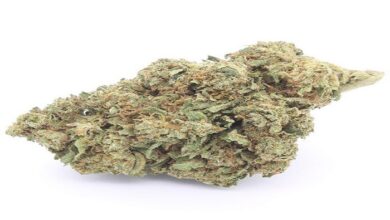CBD While Pregnancy: Is It Safe or Risky?

CBD, or cannabidiol, is a natural compound found in the hemp plant that has gained popularity in recent years for its potential health benefits. CBD may help with various issues, such as stress, anxiety, pain, inflammation, and sleeplessness. However, if you are pregnant or planning to become pregnant, you might have some questions about the safety and risks of using CBD during pregnancy.
In this blog post, we will review some of the current evidence and expert opinions on CBD while pregnancy and explain why you should avoid it until more research is done.
What is CBD and how does it work?
CBD is one of over 120 cannabinoids, or chemicals, found in the cannabis plant. Unlike tetrahydrocannabinol (THC), another cannabinoid, CBD does not produce the “high” that is often associated with cannabis. Instead, CBD may have various effects on your body and mind, such as:
- Reducing stress and anxiety by interacting with serotonin receptors
- Relieving pain and inflammation by modulating the activity of immune cells
- Improving sleep quality and duration by influencing the sleep-wake cycle
- Supporting brain health and function by stimulating neurogenesis and neuroprotection
CBD works by interacting with your endocannabinoid system (ECS), which is a network of receptors and molecules that regulate various functions in your body, such as mood, appetite, memory, and immune response. Your body produces its own cannabinoids, called endocannabinoids, that bind to these receptors and help maintain balance and homeostasis. CBD may enhance the effects of your endocannabinoids or inhibit the enzymes that break them down.
CBD can be extracted from either marijuana or hemp plants. Marijuana plants contain high levels of THC, which is the psychoactive compound that causes the “high”. Hemp plants contain low levels of THC (less than 0.3 percent) and high levels of CBD. CBD products can be derived from either plant, but hemp-derived CBD products are more widely available and legal in most states.
CBD products can come in various forms, such as oils, capsules, gummies, creams, and vapes. You can consume CBD orally, sublingually (under the tongue), topically (on the skin), or inhalationally (through vaping). The dosage, potency, onset, and duration of CBD effects may vary depending on the product type, method of consumption, individual factors, and desired results.
What are the benefits of CBD?
CBD has been studied for its potential benefits for various health conditions and symptoms. Some of the most common uses of CBD include:
- Chronic pain: CBD may help reduce pain and inflammation associated with conditions such as arthritis, fibromyalgia, neuropathy, and cancer.
- Anxiety and depression: CBD may help ease anxiety and depression by influencing serotonin levels and neural activity in the brain.
- Epilepsy: CBD may help reduce the frequency and severity of seizures in people with epilepsy, especially rare forms such as Dravet syndrome and Lennox-Gastaut syndrome.
- Insomnia: CBD may help improve sleep quality and duration by regulating the sleep-wake cycle and reducing stress and pain.
- Neurodegenerative diseases: CBD may help protect the brain from damage and degeneration caused by conditions such as Alzheimer’s disease, Parkinson’s disease, and multiple sclerosis.
CBD may also have other benefits for your health and wellness, such as:
- Boosting your immune system
- Regulating your appetite and metabolism
- Balancing your mood and energy levels
- Enhancing your skin and hair health
What are the risks of CBD?
CBD is generally considered safe and well-tolerated by most people, but it may have some side effects and interactions that you should be aware of. Some of the possible side effects of CBD include:
- Drowsiness
- Dry mouth
- Diarrhea
- Changes in appetite or weight
- Low blood pressure
CBD may also interact with some medications, such as:
- Antidepressants
- Antipsychotics
- Anticonvulsants
- Blood thinners
- Opioids
If you are taking any medications, you should consult your doctor before using CBD, as it may affect their effectiveness or cause adverse reactions.
What do we know about CBD while pregnancy?
The current evidence on CBD while pregnancy is very limited and inconclusive. There are no human studies that directly examine the effects of CBD on pregnant women or their fetuses. Most of the available research is based on animal models or observational data from women who use cannabis during pregnancy.
The Federal Drug Administration (FDA) says it “strongly advises against” taking CBD while pregnant or breastfeeding. The FDA warns that there may be serious risks to using cannabis products, including CBD, during pregnancy or while breastfeeding, such as:
- Potential harm to fetal brain development
- Low birth weight
- Premature birth
- Stillbirth
The FDA also cautions that CBD products may contain other contaminants, such as pesticides, heavy metals, or THC, that could pose additional risks to pregnant or breastfeeding women and their babies.
The Centers for Disease Control and Prevention (CDC) also advises against using CBD while pregnant or breastfeeding. The CDC states that there is no safe amount of cannabis use during pregnancy or while breastfeeding and that using cannabis products, including CBD, may expose the baby to harmful substances that could affect their growth and development.
The American College of Obstetricians and Gynecologists (ACOG) recommends that pregnant and breastfeeding women avoid using cannabis products, including CBD, until more research is done. ACOG acknowledges that some women may use CBD for medical reasons, such as nausea, pain, or anxiety, but urges them to discuss the potential benefits and risks with their health care providers and consider alternative therapies.
What are the alternatives to CBD while pregnancy?
If you are pregnant or planning to become pregnant, you should avoid using CBD until more research is done on its safety and efficacy during pregnancy. However, if you are experiencing symptoms or conditions that you would normally use CBD for, such as nausea, pain, anxiety, or insomnia, you may want to explore other natural and effective alternatives that are safe for you and your baby. Some of these alternatives include:
- Ginger: Ginger is a natural remedy that can help ease nausea and vomiting during pregnancy. You can consume ginger in various forms, such as tea, capsules, candies, or cookies.
- Acupuncture: Acupuncture is a traditional Chinese medicine technique that involves inserting thin needles into specific points on your body. Acupuncture can help reduce pain and inflammation during pregnancy, as well as improve mood and sleep quality.
- Massage: Massage is a form of touch therapy that involves applying pressure and movement to your muscles and tissues. Massage can help relax your body and mind during pregnancy, as well as relieve stress, anxiety, pain, and insomnia.
- Meditation: Meditation is a practice that involves focusing your attention on your breath, a word, a sound, or an object. Meditation can help calm your mind and emotions during pregnancy, as well as improve your mental and physical health.
- Yoga: Yoga is a form of physical activity that combines breathing exercises, poses, and relaxation techniques. Yoga can help improve your flexibility, strength, balance, and posture during pregnancy, as well as reduce stress, anxiety, pain, and insomnia.
Conclusion
CBD is a natural compound that has many potential health benefits, such as reducing stress, anxiety, pain, inflammation, and sleeplessness. However, if you are pregnant or planning to become pregnant, you should avoid using CBD until more research is done on its safety and efficacy during pregnancy.
The current evidence on CBD while pregnancy is very limited and inconclusive. There are no human studies that directly examine the effects of CBD on pregnant women or their fetuses. Most of the available research is based on animal models or observational data from women who use cannabis during pregnancy.
Government agencies such as the FDA and CDC strongly advise against using CBD while pregnant or breastfeeding. They warn that there may be serious risks to using cannabis products, including CBD, during pregnancy or while breastfeeding, such as:
- Potential harm to fetal brain development
- Low birth weight
- Premature birth
- Stillbirth
They also caution that CBD products may contain other contaminants, such as pesticides, heavy metals, or THC, that could pose additional risks to pregnant or breastfeeding women and their babies.
If you are pregnant or planning to become pregnant, you should avoid using CBD until more research is done. However, if you are experiencing symptoms or conditions that you would normally use CBD for, such as nausea, pain, anxiety, or insomnia, you may want to explore other natural and effective alternatives that are safe for you and your baby. Some of these alternatives include:
- Ginger
- Acupuncture
- Massage
- Meditation
- Yoga
CBD is a promising compound that may have many benefits for your health and wellness. However, if you are pregnant or planning to become pregnant, you should wait until more research is done before using it. In the meantime, you can try other natural and effective alternatives that can help you cope with the challenges of pregnancy. Always consult your doctor before using any supplements or therapies during pregnancy.



